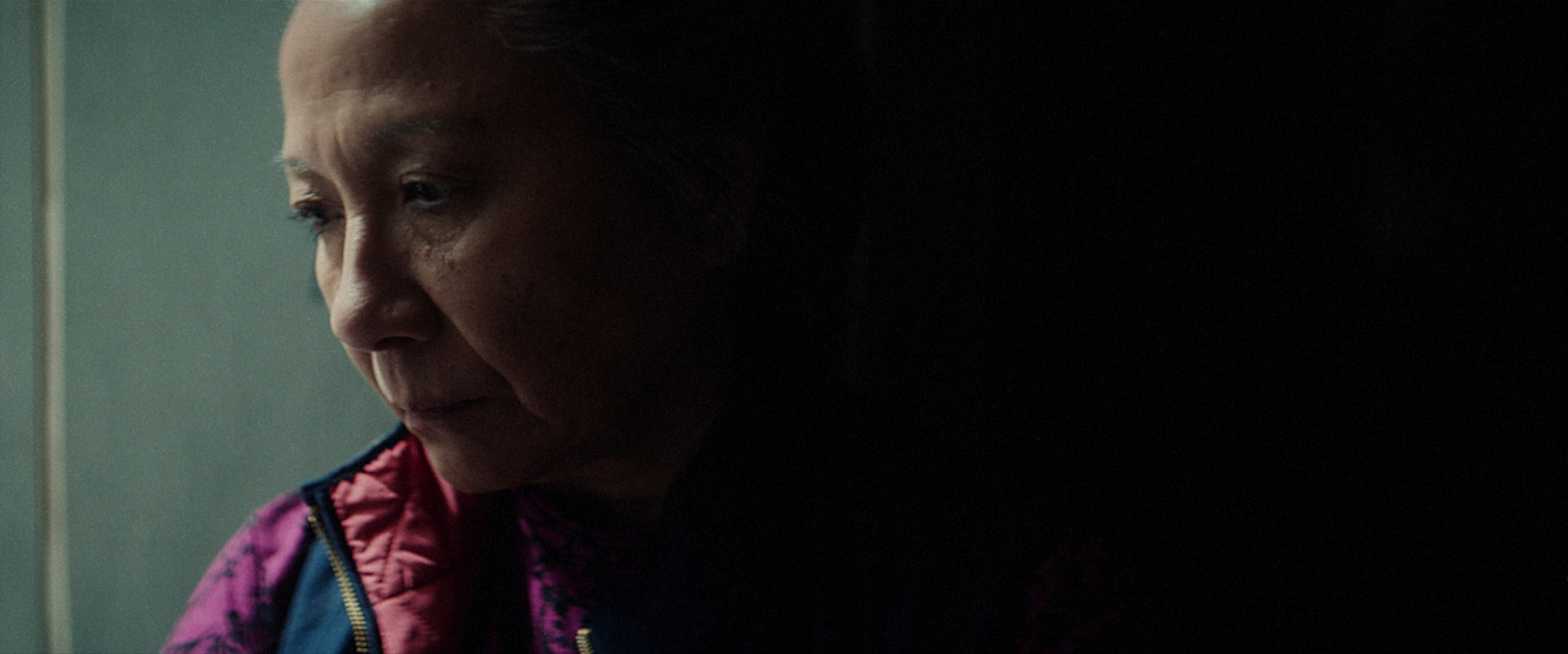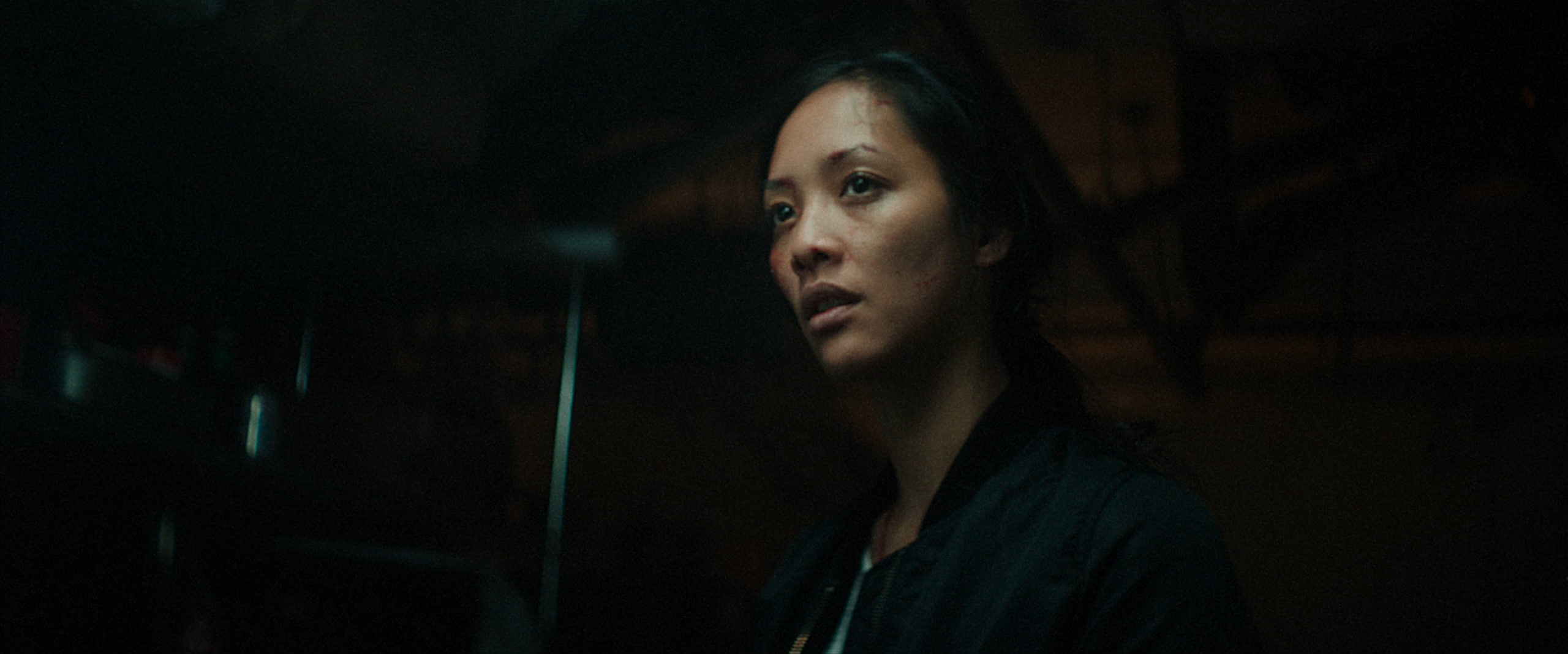by Brian Hioe
語言:
English
Photo Credit: Film Poster
This is a No Man is an Island film review written in collaboration with Cinema Escapist. Keep an eye out for more!
WITH VIOLENCE AGAINST Asian immigrants in the US spotlighted by incidents such as the shootings of Asian spa workers that took place in Atlanta in March, Snakehead is not just a film in remarkably poor taste, it is also a comically bad film. This is all the more so, in consideration of the production crew, which seems to largely consist of Asian Americans.
Snakehead follows “Sister Tze”, an undocumented Chinese immigrant to the US that becomes a “snakehead” involved in smuggling other undocumented immigrants across the border. As a snakehead, she works with a Chinatown-based crime family headed by a powerful matriarch, “Dai Ma,” and her sons.
After a previous failed attempt to enter the US caused Sister Tze’s daughter to be taken from her, her daughter was adopted by a white American family. As such, Sister Tze is driven to become a snakehead to find and potentially reclaim her daughter. Dai Ma treats Sister Tze as a protege, but Sister Tze feels morally conflicted about her work as a snakehead, something that comes to a head when the police begin to investigate her actions.

Dai Ma. Photo credit: Film still
At the start of the movie, Snakehead’s initial pretensions are to be a realistic depiction of undocumented immigrants’ experience in the US. Sister Tze begins working in massage parlors and wrapping dumplings for a restaurant owned by Dai Ma, who apparently was the snakehead that smuggled Sister Tze over.
However, the film quickly drops any realism in favor of a cartoonish gangster film narrative. Apropos of nothing, Sister Tze is suddenly elevated to the inner circles of Dai Ma’s crime family and becomes involved in their human smuggling operations. This occurs despite the fact that she is still wrapping dumplings in Dai Ma’s kitchen. It is not clear why Dai Ma’s family suddenly decide to elevate a random woman they smuggled into the US to fold dumplings to their highest echelons of decision-making.
Violence against immigrants in the film is sensationally lurid, though the results are so exaggerated as to be hilarious. In one laughable scene, after chatting with Sister Tze for several minutes, with no warning, Dai Ma produces a man tied up in a box in her kitchen and orders Sister Tze to kill him as a test of loyalty. Before this, none of the characters seem to have noticed the man in a box.
Likewise, human smuggling operations are depicted as though they were gangster movie drug deals, involving tense negotiations between involved parties, and with the strong possibility of deals going horribly wrong. Dai Ma’s rather inchoate and apparently vast human trafficking operation involves not only travel across the borders of Canada and Mexico, but also travel by sea from China, using the same skeleton crew of less than five individuals.
Although Dai Ma is meant to be a parallel character to Sister Tze, the film’s characters are generally wooden caricatures. Dai Ma’s sons, who round off the cast, seem more like characters from Fast and the Furious than anything else (This may not be coincidence, given director Evan Jackson Leong’s work on the Fast and the Furious series but is ironic, given that franchise helmer Justin Lin’s debut feature, Better Luck Tomorrow, is a much more competent take on Asian American organized crime). We are given very few reasons to care about any of them.
Other issues in the film come from Asian immigrants or Chinatowns. Despite being a recent Chinese immigrant, Sister Tze inexplicably does not know how to fold dumplings when she arrives in America and has to be taught by an African co-worker how to do so. A scene involving Dai Ma’s sons and associates playing poker seems taken from American gangster films. But this seems very unlike Chinese gangster films, in which mahjong would more commonly be played.
Even as a gangster movie, Snakehead is flimsy as a depiction of Asian organized crime in the US. Sister Tze, Dai Ma, and her sons little resemble an Asian organized crime group. Instead, they act and behave according to tropes drawn from American gangster films, something particularly visible in the dynamics of how members of Dai Ma’s crime group interact with each other. These dynamics do not reflect the hierarchical, seniority-based structure of Asian crime groups or the etiquette-based interaction between Asian gangsters. Snakehead should have likely looked to Asian gangster films or other depictions of Asian crime groups in America from the diaspora, say, a movie such as John H. Lee’s The Cut That Runs Deep. But it clearly only had white American gangster films in mind as models.
More generally, Snakehead strikes as a film that did almost no research into the experience of undocumented Asian immigrants in the US. This just serves to drive home that Snakehead is not concerned with the plight of immigrants—instead, it sensationalizes their conditions for the sake of its cookie-cutter gangster narrative.
Ironically, some of the standouts of American gangster films are precisely about the immigrant experience—often depicting Italian or Irish gangsters. Examples include The Godfather trilogy or Martin Scorcese’s gangster films. But it should be clear that while Snakehead may mimic American gangster films, it does not have any capacity for critical reflection.

Sister Tze. Photo credit: Film still
Whatever thematic message it is that the movie attempts exactly, this is garbled. Periodic monologues by Sister Tze about the American Dream that are disconnected to anything else in the movie suggest that the filmmakers do view Snakehead as a comment about the immigrant experience. Yet these monologues are completely unlike what a recent Chinese immigrant to the US would say in the year 2021. Given tensions between the US and China that began under the Trump administration and incidents such as the Atlanta shootings, it is unlikely that a contemporary Chinese immigrant would have such idealistic views of the US.
Indeed, Snakehead cannot even manage a coherent narrative, given its numerous gaping plot holes. Sister Tze encounters her long-lost daughter within five minutes of arriving in America, for no apparent reason other than running into her on the street. At one point, a man with a Taiwanese accent tells Sister Tze that he does not trust Dai Ma to smuggle his family over safely from Canada and asks her e to help. But if this man does not trust Dai Ma, why would he then trust Sister Tze to be any better? Sister Tze is, after all, a complete stranger who works for Dai Ma. There are numerous other examples of plot holes.
Snakehead is an almost unpalatable movie. The film has some technical merits thanks to a seemingly generous budget. Nevertheless, the movie takes an issue in dire need of greater focus and thrusts it aside in favor of a poorly thought-out train wreck of a gangster movie. And even this is beyond Snakehead’s capacities.



